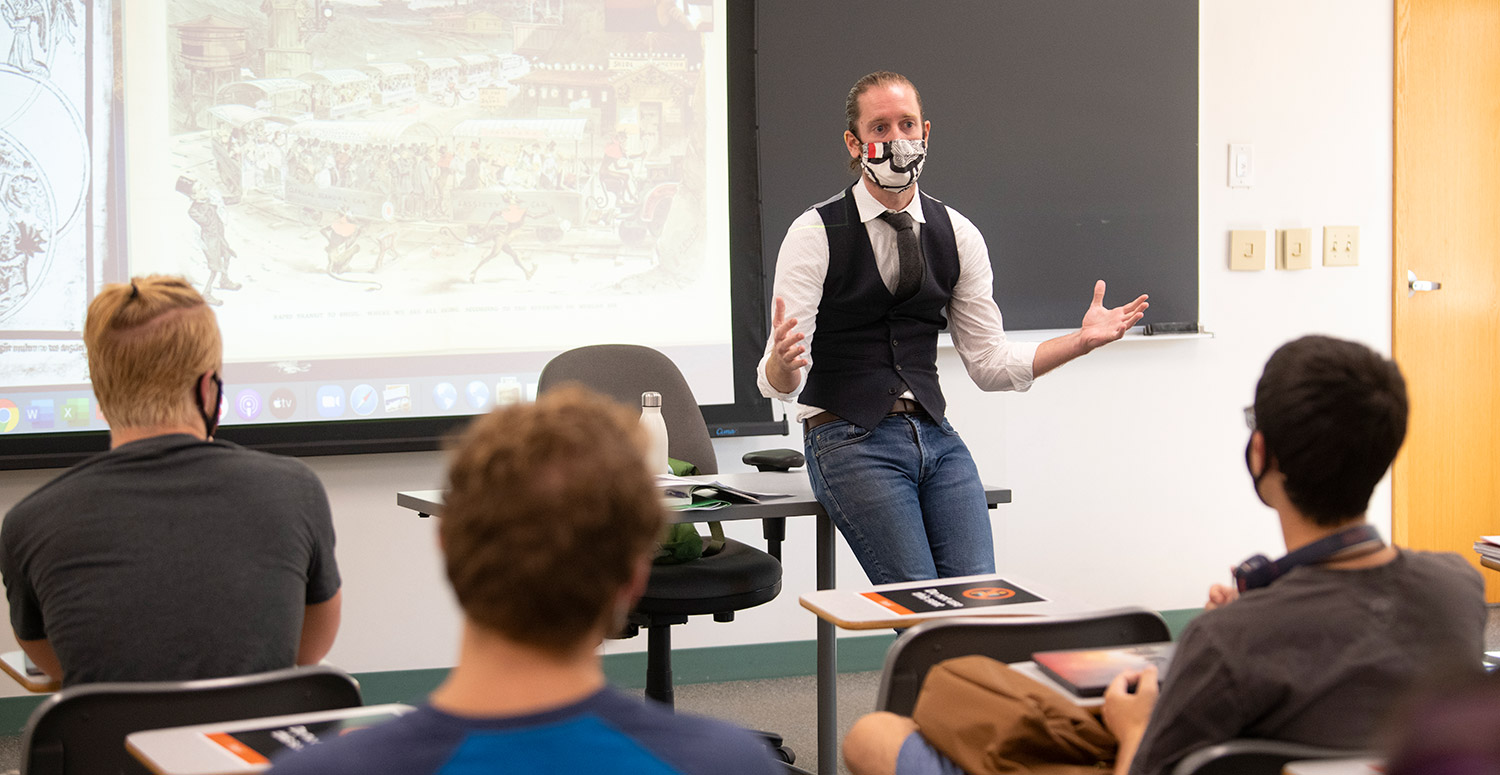

More Than Medicine
Humanities grant funds new health minor with a liberal arts focus
The headlines are everywhere: hospital admission rates, infection spikes and projections about a years-long pandemic keep health at the forefront of our everyday concerns.
But the health landscape isn’t cleanly delineated by diagnoses, pharmaceutical treatments and advancements in biomedical interventions. For many Bucknell professors in the humanities, health is a complex field of understanding rooted in people — their histories, environments and experiences.
Starting this summer, 14 faculty members will begin designing a new health humanities minor that will explore these intricacies through numerous lenses. The minor is funded by a $150,000 grant awarded to the faculty team by the National Endowment for the Humanities and will be part of the College of Arts & Sciences. It is anticipated to launch in three years.
An emerging field in higher education, health humanities draws upon history, philosophy, cultural studies and the social sciences to create a rounded, humanistic understanding of health and medicine.
How does one’s culture, faith or living environment influence what it means to be healthy or sick? What influence do race, gender and class have on who is considered healthy and who is not?
“The answers aren’t biological facts that can be discovered or objectively observed,” says Professor Jennifer Kosmin, history. “They’re reflections of cultural ideas, societal norms and values.”
In the new minor, students will wrestle with these multifaceted approaches to health with all of the rigorous interdisciplinary study that marks a Bucknell education. While the minor will be open to students from any discipline, its foundation in the humanities will serve to broaden the boundaries of health and medicine far beyond the applied sciences. For those eager to work in law, finance, policy and more, “understanding the fundamental relationships between science, culture, power and medicine is incredibly valuable and empowering,” says Professor Jeremy Chow, English.
But students won’t have to wait until after graduation to put these tools to work. To distinguish Bucknell’s approach to health humanities, the minor will feature a capstone course centered on community engagement partnerships with medical and nonprofit organizations in the Susquehanna Valley. Students will work with these service providers on meaningful local projects, taking humanistic health beyond classroom curiosity and into the real world.
“Establishing Bucknell as a local, regional and national leader in the health humanities is core to our vision,” says Professor John Penniman, religious studies. “The expertise of our faculty, as well as other institutional partners in the area, is so strong. We seek to be ambitious about what we can do with that strength.”